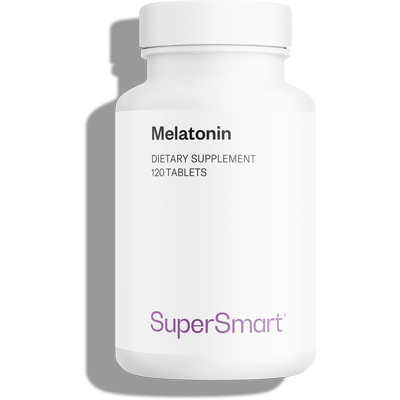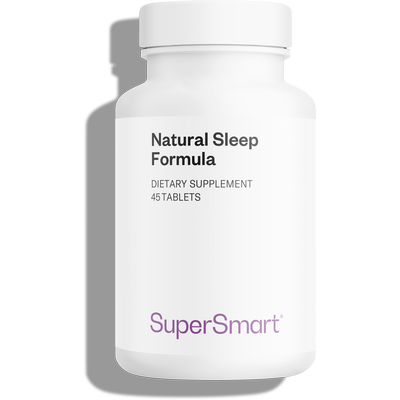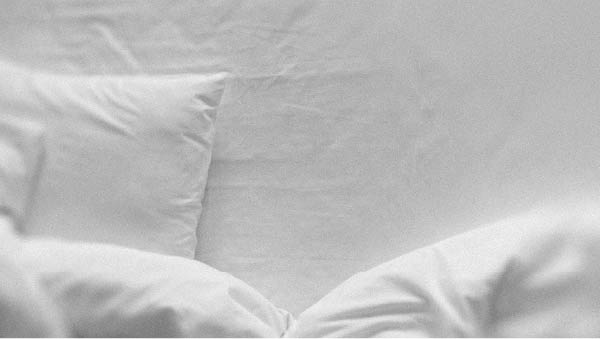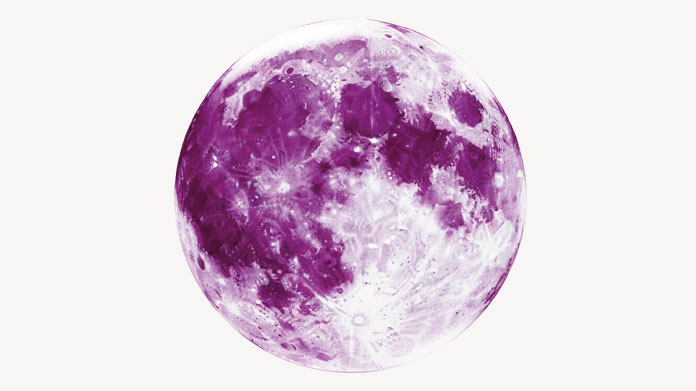Fall asleep quickly without sleeping pills: the forgotten natural treatment
You’re probably one of the many people who have experienced the horrors of insomnia : the stifling duvet, the clammy skin, the tossing and turning and the unbearable feeling that there’s nothing you can do about it. That you’ll never get to sleep … Perhaps you’re even one of the 20%-40% of the population for whom sleep has become a living hell. Whichever it is, you’re obsessed with finding a way to get to sleep quickly. But what if we told you that there’s a natural and effective treatment that’s largely overlooked by insomniacs?
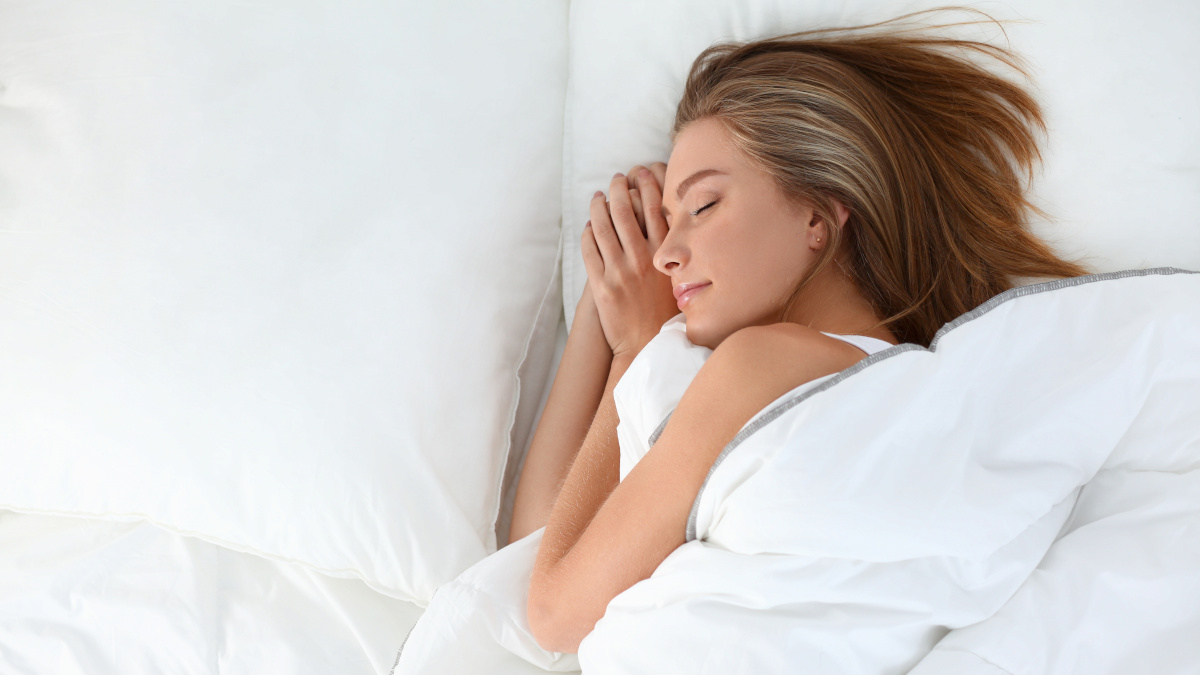
Society-wide sleep debt
Throughout the ages, people of all social and cultural backgrounds have experienced sleep issues. Yet in today’s society, we seem to have a particular problem with insufficient sleep. So what exactly are the psychological and physiological effects of a chronic, long-term lack of sleep? What purpose does sleep serve? Incredible though it may seem, we still don’t have complete answers to these questions. We know that sleep enables us to consolidate what we’ve learnt during the day, and that it is associated with tissue restoration, growth and mental rest (1). We also know it has a profound effect on the body: blood test results and cognitive scores of young men aged 20 who had had just four hours sleep a night for six nights were found to be similar to those of 60 year-old diabetics (memory loss, hypertension, lower insulin secretion)(2). Should we, however, be concerned about the odd bad night’s sleep? What exactly are the different sleep disorders? And how can we address them naturally?We are not equal in our sleep habits
Before we discuss the various problems people have with sleep, let’s take a look at the process itself. Sleep is a periodic state characterised by a suspension of consciousness. It is governed by three regulatory processes: circadian rhythms (controlled by the biological clock), ultradian rhythms (which regulate alternating sleep phases) and the homeostatic process (the progressive build-up of sleep pressure during wakefulness)(1).It has been observed that circadian rhythms are not the same in everybody. Some people have a strong preference for going to sleep later than others. In other words, they may be ‘owls’ while others are ‘larks’. In today’s society, owls or night people may find themselves almost permanently sleep-deprived even though they are less prone to sleepiness than morning people. This is entirely logical: ‘night people’ are constantly struggling to adapt to normal working hours with which they are not naturally ‘in synch’.
Alongside this preference, it’s often said we need 7-8 hours of sleep a night in order to be on top form during the day. How many people drive themselves crazy trying in vain to achieve this ideal when in fact they don’t need this much sleep? This pseudo-scientific recommendation deserves to be given short shrift. For some time, scientists have recognised that there are short sleepers, for whom five hours a night is plenty, and long sleepers, who need at least 10 hours. It’s for each of us to decide our own needs. And it’s for each of us to determine our own particular sleep problems. Here is a list – though not exhaustive - of sleep disorders:
- Interrupted sleep . Waking up several times a night often makes you feel as if you’ve not had a wink of sleep. Almost 30% of over-65s experience interrupted sleep (2). As we get older, there is a decline in our body clock mechanisms, increasing night wakefulness (to between 7 and 21 episodes a night, according to the scientific literature(2)).
- Early-morning waking. Waking up too early is a common problem, particularly among those over 60, the reason being an ageing body clock. For under-60s, it may be linked to depression.
- Sleep-onset insomnia. This imbalance is characterised by difficulties in falling asleep – where it can take at least 30 minutes longer than normal.
- Circadian rhythm problems. These affect individuals whose internal body clocks are completely out of control. Although they naturally fall asleep very late (often after 2am), their working hours oblige them to go to bed early. This often leads to immense difficulty in getting to sleep and anguished nights. Regularly going to bed after 2am results in sleep deprivation and serious disruption to biorhythms.
- Occasional insomnia. This is primarily the result of a major change in your daily life: travel, stress, exams, moving house, over-consumption of alcohol or coffee, family conflicts or stopping taking sleeping tablets ... When the cause goes away, so too does the insomnia, though the problem can sometimes persist, creating a vicious circle
Stress and sleeping pills: avoid the trap
Stress is one of the main causes of insomnia: it can keep you awake all night. Even when the source of the stress diminishes, the fear of not sleeping can take over, creating a vicious circle that’s hard to get out of. The longer it goes on, the more difficult it becomes. It’s therefore important to act swiftly and decisively.Unfortunately, most insomniacs are desperate to get rid of the problem at all costs and choose to take sleeping pills (also known as hypnotics). They ignore the fact that there’s a heavy price to pay: autonomy. Scientists have shown that 89% of people who start taking a benzodiazepine or other hypnotic continue to do so for at least eight years (1). And with good reason: as well as significantly changing the architecture of sleep, hypnotics also cause genuine dependency. So forget this ‘false remedy’ and start by improving your lifestyle (make sure you’re physically active during the day, go to bed at regular times, and avoid stimulants such as alcohol and tobacco before bed…)(4, 5).
Rediscover the pleasures of sleep
For insomniacs, the pleasure that sleep brings is just a memory: for them, it has become nothing more than a relentless, biological function which must be accomplished for fear of dire consequences. Others are anxious about the loss of consciousness sleep induces. Either way, there is no longer any pleasure to be gained from going to bed. Yet this is a basic requirement for sleeping well. Therefore, steps need to be taken to foster the feeling of pleasure that comes from going to bed – for example, listening to soothing or New Age music (6-8), or doing breathing or relaxation exercises before going to sleep.Relaxation allows you to clear your mind of all thoughts. It also prevents you from actively seeking sleep – it will come naturally when you are completely relaxed physically and mentally. Try this exercise to see the effects for yourself. Lie down on your bed in a comfortable position then repeat the words “My right arm is completely heavy”, imagining your arm is made of lead. Breathe deeply, concentrate hard and say the words calmly but with conviction. It’s guaranteed to work.
The ‘problem box’ to stop you worrying
Those who suffer from sleep problems sometimes get the feeling they’re taking a really heavy bag to bed with them. A huge bundle of work, relationship and family problems that they’ve been ruminating over all day. They’re so preoccupied with this that they wonder if they’re going to be able to get to sleep. That’s when they should use the problem box. This is a container placed just outside your bedroom door into which you ‘deposit’ your worries before going to bed. Its purpose is to keep your problems intact overnight and by the morning you will be better equipped to address them. The idea is to lift your spirits, temporarily at least, so that you go to bed in a more relaxed state. Write down everything that’s worrying you on a piece of paper and put it in the box, then go to bed. The resulting detachment from your problems helps you get things in perspective. Sometimes, it can even make your problems feel much less daunting in the morning! A good night’s sleep can make you see things differently …So you can’t get to sleep – what do you do?
You turn over again and again but you just can’t get to sleep. You’re inwardly ranting, believing that without sleep, the next day will be a write-off. The period immediately before falling asleep is the most receptive to positive or negative messages. So stop thinking anxious thoughts and tell yourself that it doesn’t matter how much ‘sleep time’ is left: it will be sufficient to ensure you wake up fresh in the morning, ready to face whatever the day brings. This kind of affirmation is a well-known technique called ‘self-fulfilling prophesy’.If the minutes continue to tick by, get out of bed and engage in a calm activity - and above all, don’t over-dramatise the problem. While the effects on health of a chronic lack of sleep are considerable, this is not the case when it’s just one or two bad nights. Insomniacs tend to exaggerate the consequences of insufficient sleep, which only serves to overplay the situation and exacerbate the problem. If you’re over 50, you also need to accept that your sleep is never going to be the same as before: the erosion of regulatory mechanisms results in frequent wakefulness, and the restorative quality of your sleep will never be what it once was (2). This is probably due to the loss of a phase of sleep.
Another myth is that sleeping in till late morning makes up for a lack of sleep in the night. This misconception ends up becoming a ‘rule’ which generates stress and sleep problems.
Finally, ask yourself if your tiredness is genuinely linked to your sleep patterns. We often say we’re tired but this word can mask a whole host of symptoms which are not necessarily connected with sleep. A 2004 survey of adults presenting with fatigue found a third had major depression (2).
Melatonin: the power of light
If, after trying everything, your sleep problems persist, there is a natural, proven treatment which you will almost certainly have heard of: melatonin.Melatonin is a neuromediator which controls the body’s internal clock. Production of melatonin by the pineal gland (sometimes called the third eye) depends on light levels, and normally starts as the light begins to fade around 8pm. Its role is to provide the brain with information on circadian rhythms in order to coordinate the body’s internal temperature, motor activity and mood with the particular time of day. It is vital for achieving uninterrupted, restorative sleep. Unfortunately, artificial light, irregular sleep patterns and blue light emitted from smartphones or laptops (9) all impair melatonin secretion.
To readjust the melatonin cycle, researchers suggested administering melatonin at certain key periods during the day. Studies indeed confirmed that oral supplementation with melatonin (at doses of between 0.3mg and 2mg a day) for four weeks reduced the time it took to fall asleep in those who were ‘out of synch’ (10-13). Research has also shown that taking such doses for at least six months – and probably more - is completely safe (14). Phototherapy also readjusts the melatonin cycle by increasing its antagonist, dopamine. The principle is simple: in the morning (between 7am and 9am) you expose yourself to white light, at a distance of less than 80cm, for at least half an hour. Studies have demonstrated astonishing results: within two to five days, restorative sleep was re-established in 80% of ‘out of synch’ individuals (15).
These two treatments are generally accompanied by recommendations based on chrononutrition. In the evening, it is advisable to eat foods rich in tryptophan(16, 17) (a melatonin precursor): avocados, bananas, chocolate, nuts and grapefruit, for example. Why do you think people used to recommend consuming a cup of hot milk with a few biscuits before bed? It’s because milk is very rich in tryptophan which is optimally absorbed when consumed with carbohydrates (the biscuits!).
We spend almost a third of our lives asleep. If poor quality sleep negatively impacts on the other two thirds – giving rise to bad moods, poor performance and – over the long term - diseases, ignoring our sleep problems is simply not an option...
SUPERSMART ADVICE
References
- Maquet P. et Smith C. , et al., Sleep and Brain Plasticity, Oxford, Oxford University Press, 2003.
- De Saint-Hilaire Zara, « Conclusion », L'insomnie, Paris, Presses Universitaires de France , «Que sais-je ?», 2006, 128 pages
- Benoit O. et Forêt J. , Le sommeil humain : bases expérimentales et physiopathologiques, Paris-Milan-Barcelone, Masson, 1995.
- Morin C. M. , Vaincre les ennemis du sommeil, Montréal, Éd. de l’Homme, 1997.
- Mullens E. , Apprendre à dormir : leçons de sommeil, Paris, Éd. Josette Lyon, 2002.
- Lai, H. L. and Good, M. Music improves sleep quality in older adults. J Adv.Nurs. 2005;49(3):234-244.
- Tan, L. P. The effects of background music on quality of sleep in elementary school children. J.Music.Ther. 2004;41(2):128-150.
- Mornhinweg, G. C. and Voignier, R. R. Music for sleep disturbance in the elderly. J Holist.Nurs. 1995;13(3):248-254.
- Anne-Marie Chang, Daniel Aeschbach, et al. Evening use of light-emitting eReaders negatively affects sleep, circadian timing, and next-morning alertness , PNAS, January 27, 2015, vol. 112 no. 4.
- Nagtegaal JE, Laurant MW, Kerkhof GA, et al. Effects of melatonin on the quality of life in patients with delayed sleep phase syndrome. J Psychosom Res 2000;48:45-50.
- Wilhelmsen-Langeland A, Saxvig IW, Pallesen S, et al. A randomized controlled trial with bright light and melatonin for the treatment of delayed sleep phase disorder: effects on subjective and objective sleepiness and cognitive function. J Biol Rhythms. 2013;28(5):306-21.
- Ferracioli-Oda E, Qawasmi A, Bloch MH. Meta-analysis: melatonin for the treatment of primary sleep disorders. PLoS One 2013;8(5):e63773.
- Buscemi N, Vandermeer B, Pandya R, et al. Melatonin for treatment of sleep disorders. Summary, Evidence Report/Technology Assessment #108. (Prepared by the Univ of Alberta Evidence-based Practice Center, under Contract#290-02-0023.) AHRQ Publ #05-E002-2. Rockville, MD: Agency for Healthcare Research & Quality. November 2004.
- Buscemi N, Vandermeer B, Hooton N, et al. The efficacy and safety of exogenous melatonin for primary sleep disorders. A meta-analysis. J Gen Intern Med 2005;20:1151-8. View abstract.
- Chesson, A. L., Jr., Littner, M., Davila, D., Anderson, W. M., Grigg-Damberger, M., Hartse, K., Johnson, S., and Wise, M. Practice parameters for the use of light therapy in the treatment of sleep disorders. Standards of Practice Committee, American Academy of Sleep Medicine. Sleep 1999;22(5):641-660
Keywords
6 Hours
The delivery was fast and the product…
The delivery was fast and the product is great
SOMMARIVA Gianni
1 Days
Great service and lots of information
Great service and lots of information
Gabi
4 Days
Service Satisfaction
I’m satisfied with the service; it fulfilled what it set out to do.
Anfhony Abreu
7 Days
Original product and fast delivery
Original product and fast delivery. I haven't started it yet, but will do soon.
Vincenza Catania
10 Days
Good quality
Good quality. Good service.
Leonel Guzman
12 Days
Top!!!!!!!!
Top!!!!!!!!
Michael
14 Days
Excellent!
Products are great and delivered fast!
PARDINI Debora
14 Days
From order to receive the product
From order to receive the product, the process is smooth & fast. It’s good to customers.
WONG Mei Ling
15 Days
Fast delivery
very quick delivery to italy. product is good.
Customer
17 Days
Prompt delivry !!👍
Prompt delivry !!👍
SWEET Christine
17 Days
Good delivery and flawless quality
AS far as delivery and the visual quality are concerned, Supersmart is excellent. I will not comment on the efficacy of the products themselves, since that is only possible over a longer period and in a large customer base compared to people who do not consume a particular product.
Roger De Backer
18 Days
Perfect services
Perfect services, perfect support, great articles about products
Michaela Alali Beitlová
19 Days
Great experience and effective supplements
I’ve purchased many types of supplements from this company over the course of years to treat a few issues, and I’m satisfied with their quality. After using them consistently for a period of time, I can say they met my expectations and I could feel real health benefits that built up over time. Deliveries are always quick. I recommend this company to anyone looking for high-quality supplements.
Giordano
19 Days
Es hat alles gestimmt
Es hat alles gestimmt. Top
marina thieme
22 Days
Great product
Great product, but still evaluating its effectiveness. Highly recommended. Super efficient delivery.
Chalise
of experience
your money back
##montant## purchase

